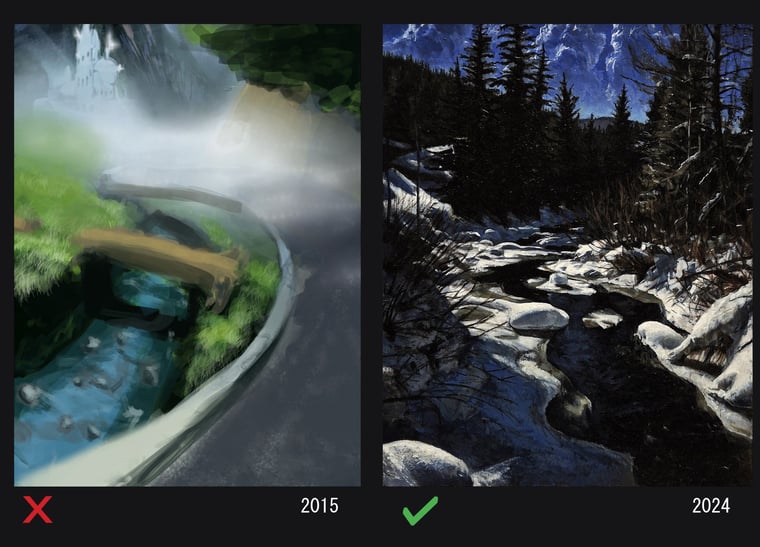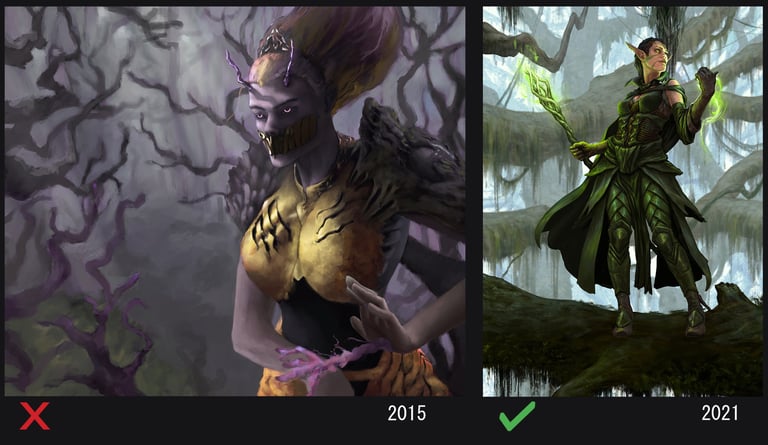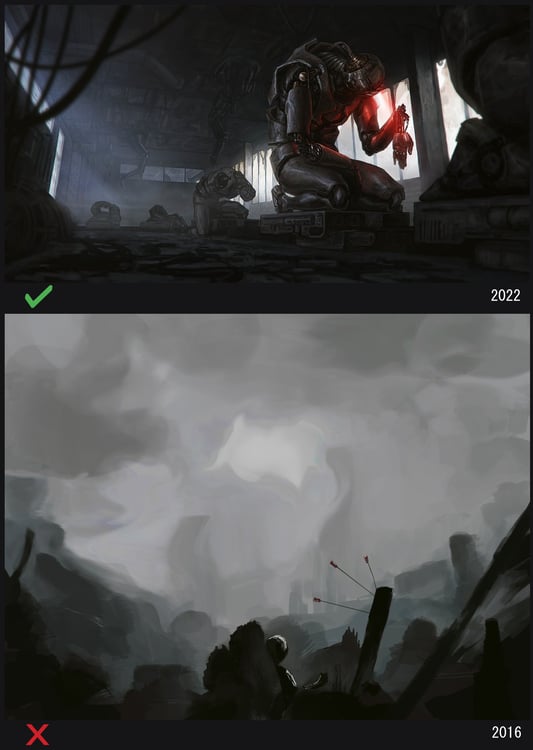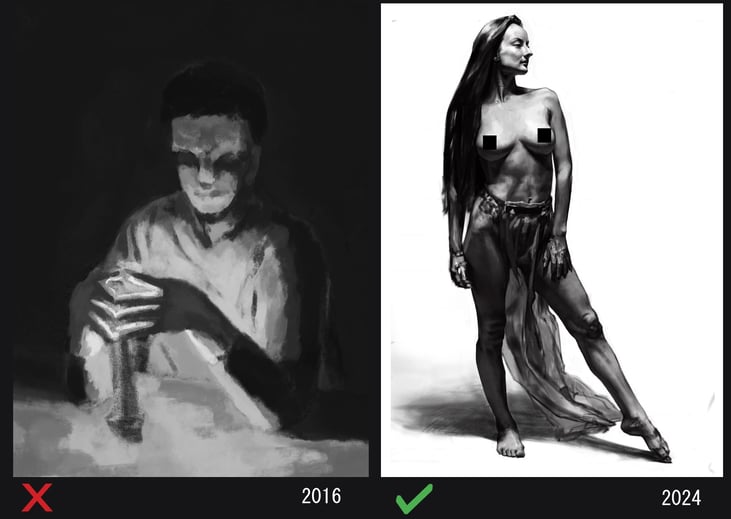
Drawing and
oil painting lessons



Ansis Ērglis
Ilustrator
I offer oil painting and drawing lessons focused on the academic principles of art. These classes emphasize foundational techniques such as values, composition, perspective, proportion, and color theory.
Whether you're a beginner or looking to refine your skills, the lessons provide a structured approach to mastering the fundamentals.
Values
Light and dark values refer to the range of lightness and darkness used to create depth, contrast, and dimension.


Composition
Composition refers to the arrangement of elements like lines, shapes, colors, and textures within a work. It determines how these elements interact to create balance, focus, and harmony, guiding the viewer's eye and conveying the intended message or emotion.


Color theory
Color theory is the study of how colors interact, combine, and create visual effects. It helps artists create balance, contrast, and mood in their work.


Perspective
Perspective in drawing is a technique used to represent three-dimensional objects and spaces on a two-dimensional surface, creating the illusion of depth and distance. It relies on key elements like a horizon line, vanishing points, and converging lines to mimic how objects appear smaller as they recede into the distance. Perspective helps make drawings look realistic and visually accurate, aligning with how we naturally perceive the world.


Anatomy and proportions
Human anatomy and proportions refer to the study of the human body's structure and how to represent it accurately.

